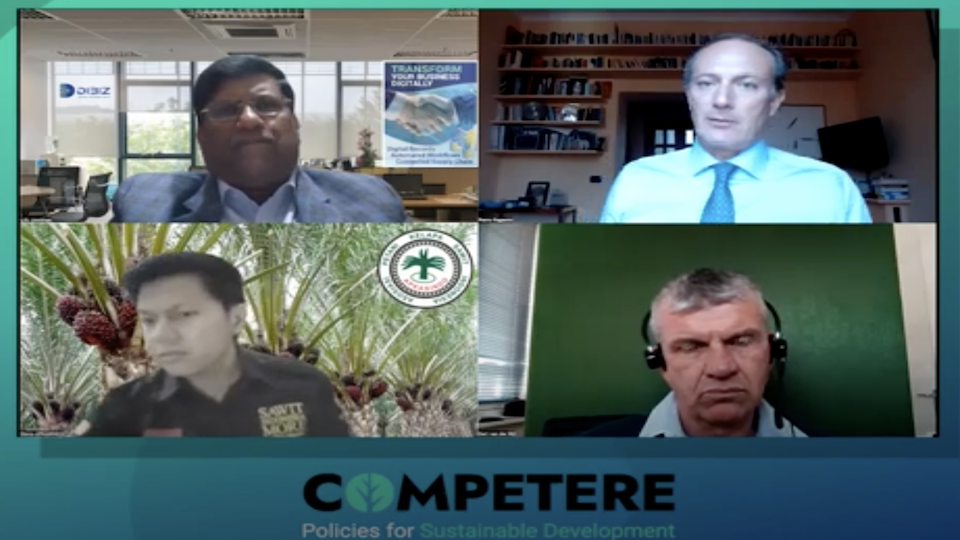EUDR Smallholders as a Pivotal Player – Pietro Paganini
Speakers were Djono Albar Burhan, Indonesian Palm Oil Smallholder Association (APKASINDO), Gert van der Bijl, Senior EU Policy Advisor, Solidaridad, U.R. Unnithan, Cofounder & CEO, DIBIZ. Read their bio here >>>
You can watch the roundtable Smallholders as Pivotal Player – Exploring the challenges and needs for EUDR success – here >>> ore hereafter-
EUDR Smallholders as a Pivotal Player
- How are the smallholders cooping with the new regulation? What’s their perception of a decision taken thousand of miles away?
- What are they doing to implement the regulation?
- What do they need from their business partners, Government and the EU?How can the EU support smallholders in producing countries?
WATCH IT AGAIN: NUTRITION AND NATURE POSITIVE POLICIES IN POLAND >>>
The EU deforestation regulation that is coming to practice has the ambitious aim to zero the import of products associated with deforestation. These include important consumer commodities such as cattle, cocoa, coffee, palm oil, rubber, soy, and timber. As often happens with new regulations, the positive intentions could bring some unintended consequences. In this respect the task of zeroing deforestation along the supply chains represent a tough challenge for millions of smallholdersworldwide. How can they comply with a very strict and articulated regulation by competing over price?
READ IT AGAIN: TOWARD PERSONALISED PRECISIOON DIETS >>>
Smallholders – defined as farmers with 10 hectares or less – may struggle to adapt to the new (yet unclear) norms given their limited resources and capital. However, they are a large and important part of the global agricultural sector: an estimated 600 million people worldwide are employed as smallholders farmers, and collectively they produce between 30 and 34 percent of the global food supply. Thus, the EU must play an active role in informing and educating smallholders, providing them with the right tools to meet the requirements.

